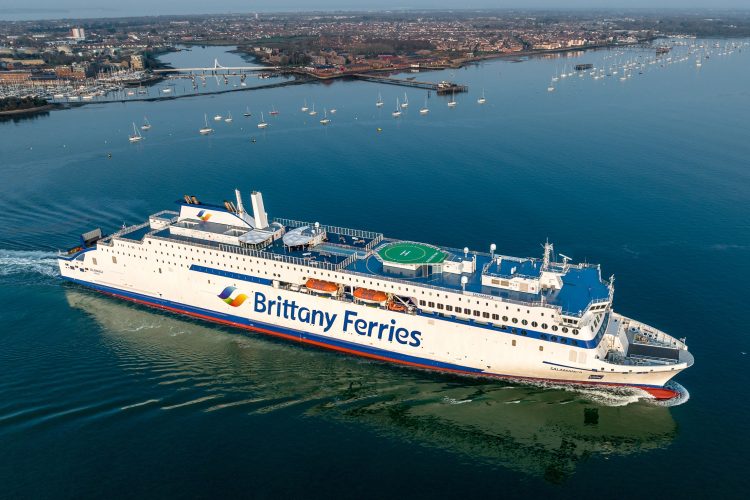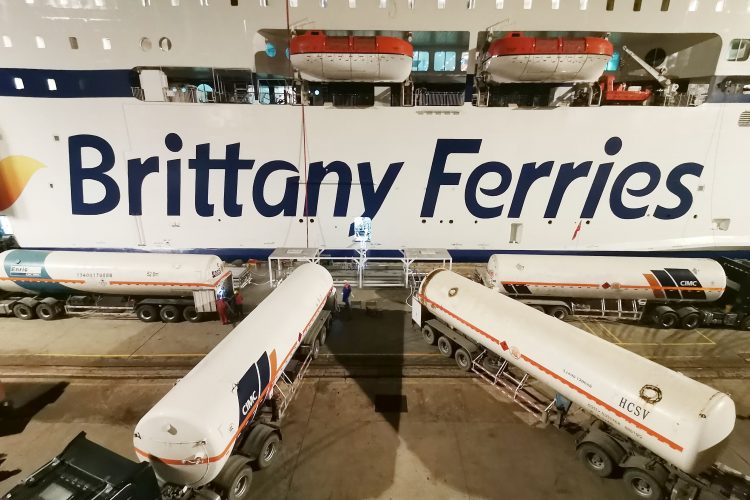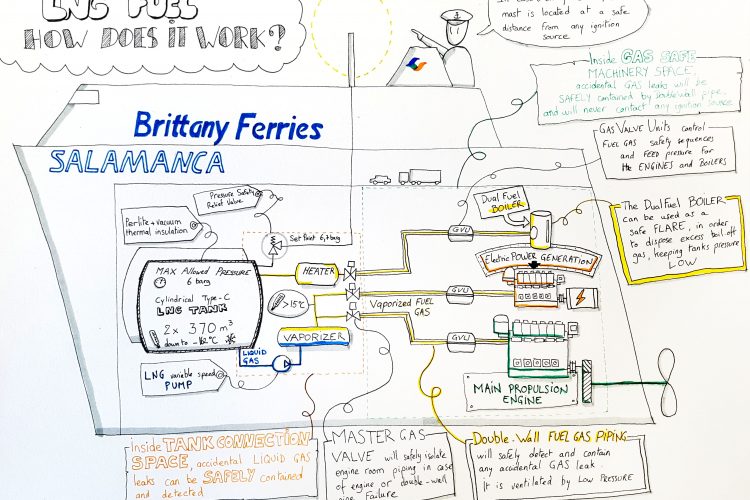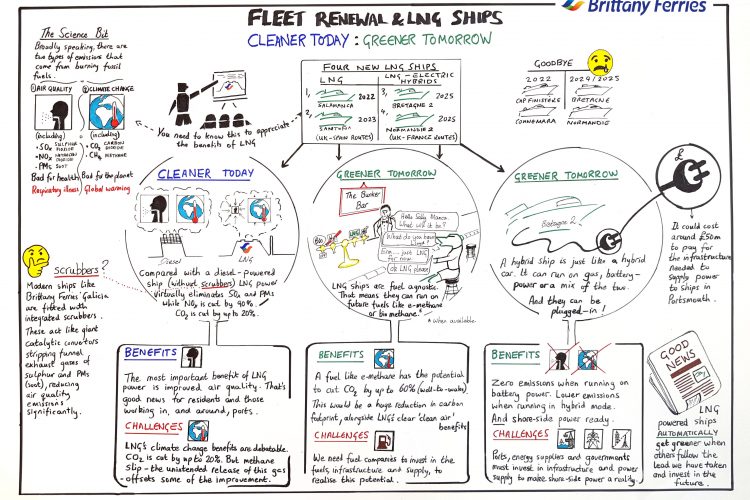UK’s first LNG-powered ferry sets sail for Spain
-
 Salamanca - first arrival into Portsmouth
Salamanca - first arrival into Portsmouth
-
 Refuelling Salamanca with cleaner LNG
Refuelling Salamanca with cleaner LNG
-
 Art on board - this is Ruben Sanchez
Art on board - this is Ruben Sanchez
-
 LNG - how does it work , artwork by Bertrand Crispils
LNG - how does it work , artwork by Bertrand Crispils
-
 First arrival into Portsmouth - image Andrew Williamson
First arrival into Portsmouth - image Andrew Williamson
-
 Fleet Renewal and LNG - Cleaner Today and Greener Tomorrow
Fleet Renewal and LNG - Cleaner Today and Greener Tomorrow
The UK’s first LNG-powered ferry leaves Portsmouth this weekend, on its inaugural voyage to Spain. Brittany Ferries’ Salamanca departs at 21:30 on Sunday 27th with more than 600 passengers and freight vehicles destined for Bilbao.
She is the first liquefied natural gas (LNG) powered vessel to join the Brittany Ferries fleet, but she won’t be the last. By 2025 four LNG ferries will call Portsmouth home, including two hybrids.
“LNG-powered ships like Salamanca are a clear statement of our commitment to the future and to fleet renewal,” said Christophe Mathieu Brittany Ferries CEO. “They are cleaner vessels, significantly cutting air quality emissions like soot and sulphur. That’s good news for port partners today, but they could be even greener in the years to come. Salamanca is capable of running on future fuels like e-methane or bio-methane if these become available in volume. Either has the potential to cut carbon footprint significantly, addition to the cleaner air that LNG-power brings from day one.”
Salamanca will make two round trips to Bilbao each week. She will also make a weekly return-voyage to Cherbourg in France. All the while she will be powered by a fuel which promises a smoother, quieter ride for passengers, as well as fewer emissions from her funnel.
Brittany Ferries’ services from Portsmouth began in 1976. Since then the city has become the company’s UK hub, with connections to four ports in France and two in northern Spain.
Brittany Ferries will strengthen its partnership with Portsmouth even further next year when Salamanca’s sister-ship Santoña joins the fleet. LNG-powered Santoña will connect Portsmouth with Santander, the capital of Cantabria and gateway to so-called green Spain. Both Bilbao and Santander Ports will host bunkering (refuelling) terminals to power the ships, supplied by fuel partner Repsol.
Two LNG-electric hybrid vessels are next to arrive, criss-crossing the Channel to connect Portsmouth with St Malo and Caen in 2025. They will operate in a way that is analogous to a hybrid car, powered by LNG, by battery power or by a combination of the two.
The hybrids will be shore-side-power ready. This means they could be plugged-in, when port-side infrastructure allows. News that Portsmouth International Port has just applied to the area’s distribution network operator (DNO), to begin the process of upgrading the electricity supply, is welcomed by Brittany Ferries.
Salamanca is one of the largest ships in the Brittany Ferries Fleet. An E-Flexer class vessel, she is 214.5 m long, with ten decks and gross tonnage of 41,716 UMS. She can host up to 1,015 passengers in 341 cabins with nearly 3km of space in her cavernous garage ready to transport cars and freight. Travelling at 21 knots, Salamanca will connect Portsmouth with Bilbao in around 28 hours (depending on schedule).
 News
News